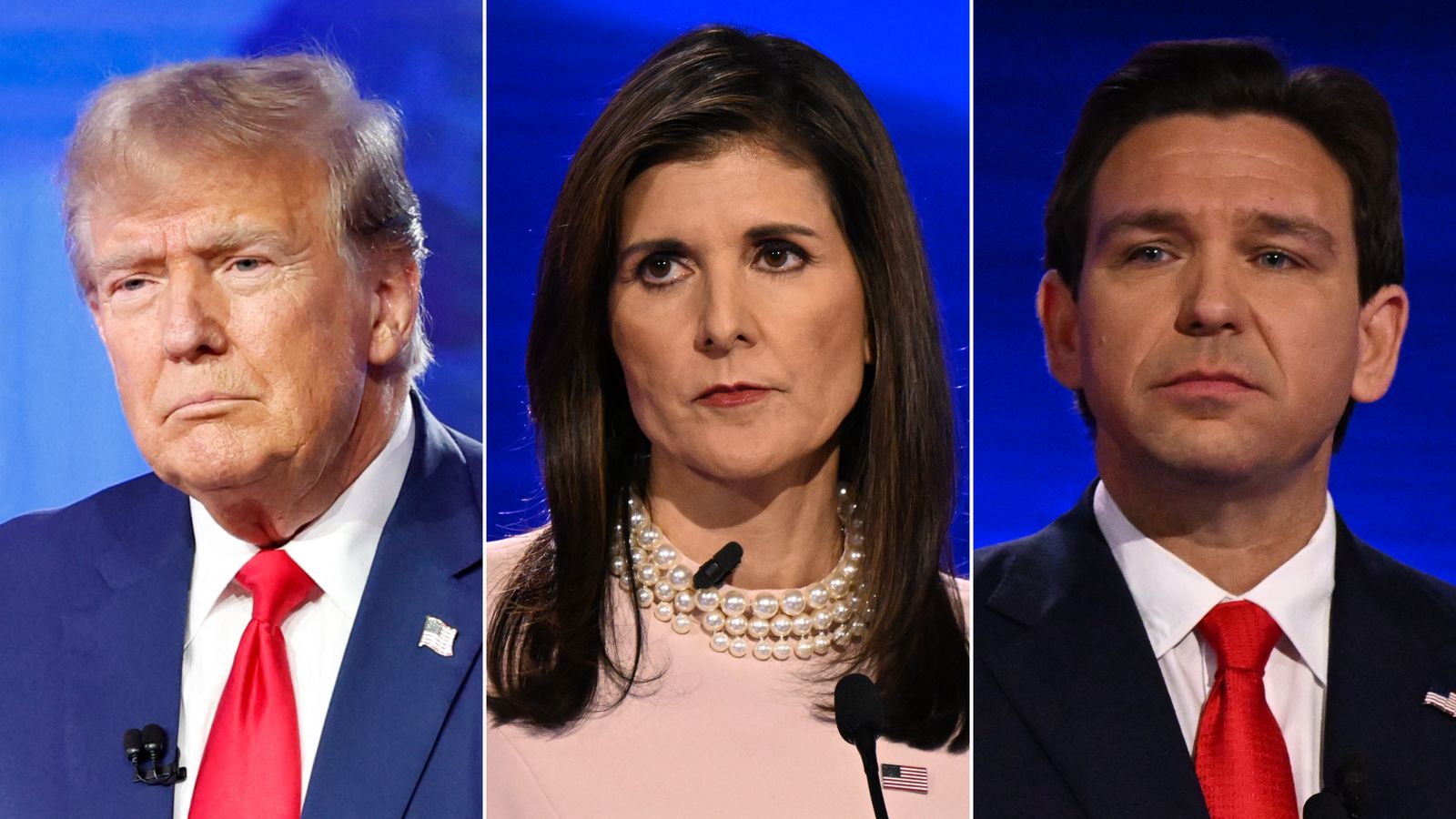In a surprising turn of events, Florida Governor Ron DeSantis announced his withdrawal from the GOP presidential race on Sunday, leaving former South Carolina Governor Nikki Haley as the sole contender against Donald Trump. This one-on-one match-up is something Republican opponents have been yearning for since the 2016 primary race. However, it seems unlikely that this will hinder Trump’s march towards his third consecutive GOP nomination.
DeSantis’ dwindling support in New Hampshire and South Carolina, the next crucial states on the calendar, suggests his exit won’t significantly alter the balance between Trump and Haley in these contests. The real impact of DeSantis’ decision to quit may lie in his endorsement of Trump, which could reinforce the message that the GOP leadership is eager to conclude the race and focus on the general election against President Joe Biden.
Trump’s lead over Haley in New Hampshire has grown slightly from 11 to 13 percentage points without DeSantis in the race, according to a CNN poll conducted by the University of New Hampshire. DeSantis’ withdrawal video, in which he was more energetic in denouncing Haley than praising the former president, may nudge this process along.
Whit Ayres, a longtime GOP pollster skeptical of Trump, believes the core issue for Republicans remains the same with two candidates in the race or three. “This whole party is defined so much by your attitude toward Donald Trump – whether you want to go with him again or whether you want to try something different,” Ayres said.
Trump’s unshakeable hold on his core constituency of non-college-educated and nonurban Whites makes every attempt to build a coalition large enough to defeat him a perplexing exercise. Not only is Trump’s support among those voters in most polls even greater now than it was in 2016, there’s evidence that they may constitute a larger share of the primary electorate than they did then.
DeSantis’ campaign strategy, which involved positioning himself to Trump’s right in an attempt to crack the former president’s hold on the most conservative elements of their party, ultimately proved unsuccessful. Unable to draw enough conservatives from Trump, and unacceptable to too many centrists, DeSantis was left with too narrow a coalition to truly threaten the front-runner.
Haley, on the other hand, has struggled to find a clear message that would allow her to reach much beyond her base. Her nuanced and muffled approach to Trump has left her, like DeSantis, caught in a squeeze-through from the opposite direction. She lost the right early on, and has failed to consolidate enough of the center.
The fact that two candidates as different as DeSantis and Haley have faced such similar dilemmas running against Trump suggests that their difficulties are less a function of their faults than his strengths in the party. As the GOP presidential race continues, it’s clear that Trump’s grip on the Republican party remains as strong as ever.

